About two dozen CUNY and public high school students, professors and activists gathered on the morning of January 31st to protest the presence of police officers in New York City’s public school campuses. Just blocks away from Manhattan’s City Hall, the activists waved banners reading “Cops Out!,” and repeated chants such as “Educate don’t incarcerate!” and “Counselor’s not cops!” on the steps of Tweed Courthouse, the current home of the city’s Department of Education.
“Cop Free School Zone,” as the event was titled, was organized by Free CUNY, a student advocacy group, and The People’s Cultural Plan, an independent group of New York City artists, performers, and cultural workers concerned with various forms of social inequality across the city. The event was called a “Solidarity action with J31,” by organizers, affiliating the protest with the city-wide actions that took place that day in opposition to the MTA’s recent fare increase, and heightened police presence in the city’s subways.
Shortly after nine AM, Alicia Grullón of The People’s Cultural Plan addressed the group of activists, attracting the attention of nearby police and commuters.
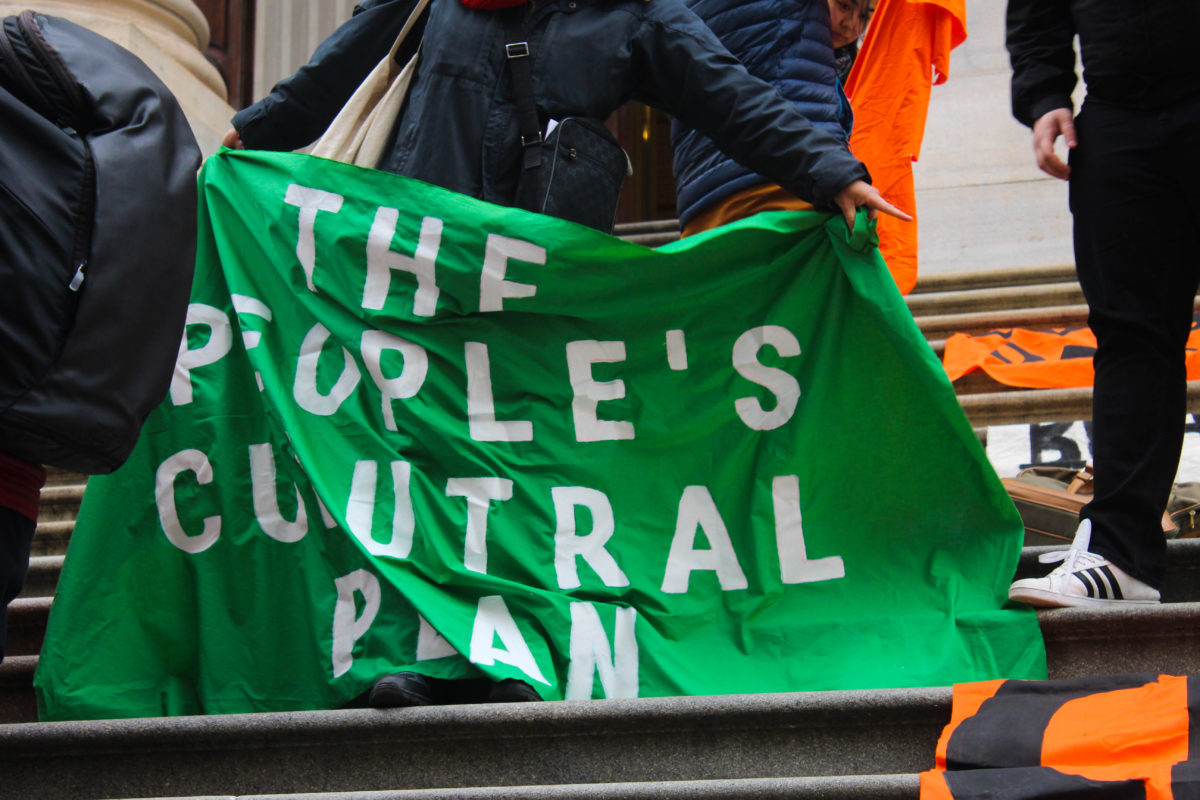
“Our five demands are to abolish educational apartheid, to free and fully fund CUNY, to make the MTA for New Yorkers,” said Grullón, the crowd repeating back each demand in solidarity. “No cops or military in our schools, and we want to disarm, disinvest in, and abolish the NYPD.”
As the crowd filled in, some protestors stood near the outer edges of the courthouse, also home to District 2 Pre-K Center. Officers motioned protesters towards the middle of the steps, instructing them to leave a clear walkway. “We’ve got to protect the pre-K school inside this building,” one of the officers told a reporter from Hyperallergic.
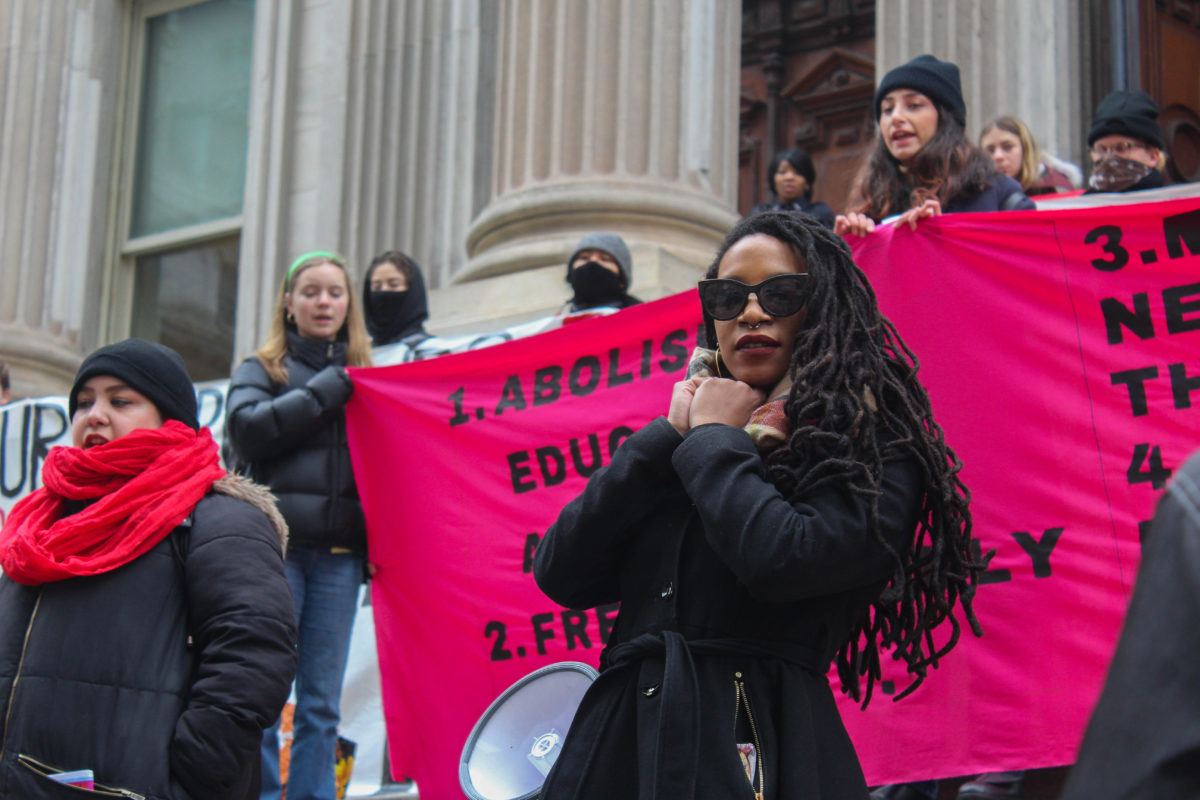
Hailey Lam, a 21-year-old English major at Brooklyn College and member of Free CUNY was one of the speakers at the event. Lam spoke about being detained while protesting CUNY tuition increases at a Baruch College Board of Trustees meeting in December of 2019 after being asked to leave the premises by campus security. She was eventually released without summons or a fine.
“Just like many other militants and radical organizers from CUNY, I was harassed because I am in direct opposition to people who profit off of surveilling, endangering, and enacting violence upon most prominently Black and Brown, working-class people,” said Lam.
According to data from the U.S. Department of Education’s Campus Safety and Security 1,256 arrests were reported during 2017, the most recent year of data available, by campus safety officers in New York State’s Public 4-year universities, as opposed to 344 arrests in Private-Not for Profits, and 3 Private-For Profit universities.
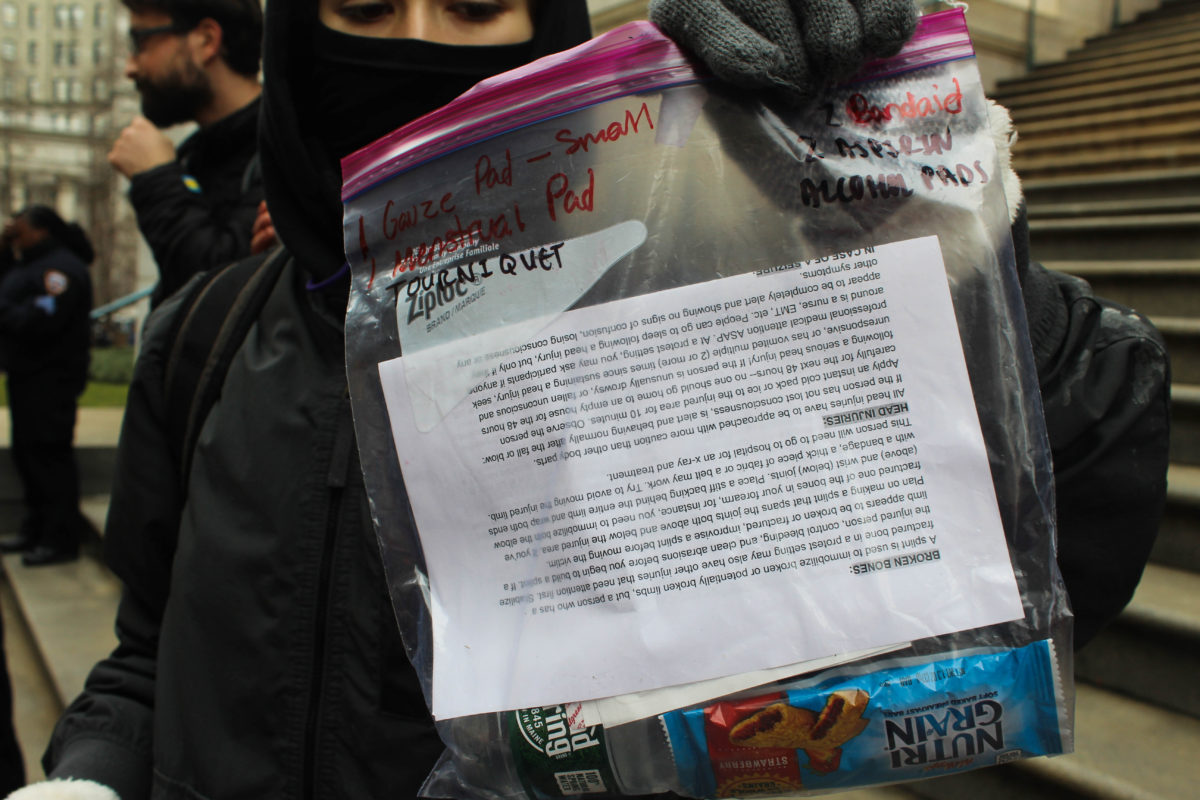
The CUNY student body consists of 85% students of color according to CollegeSimply, as opposed to NYU’s 66% and Fordham University’s 41%. Because of this, the racial implications of higher arrest rates on public campuses were at the forefront of the discussion on Friday.
“CUNY has not done anything to combat these racist and fascist cops on campus,” said Sarah, a sociology major at Brooklyn College and Free CUNY activist who did not want their last name published out of concern that it would affect their admission into graduate school.
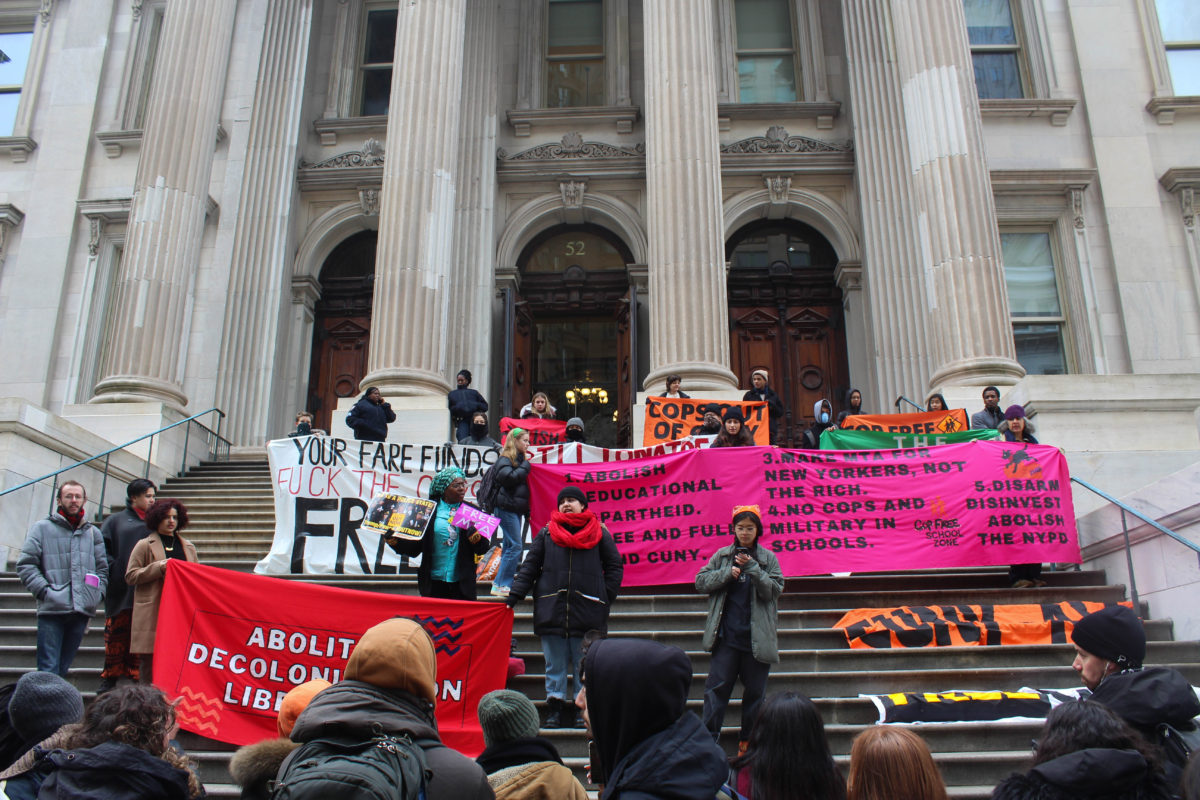
“Brooklyn College employs specifically trained Public Safety Officers, not New York City Police Officers, to ensure the daily safety of our students, faculty and staff. It is the institution’s top priority to create a safe environment for learning, and Public Safety Officers are a key component to fulfilling that responsibly,” said Brooklyn College’s Media Relations Manager, Richard Pietras when asked to comment.
Dominick Braswell, a 28-year-old alumni of Brooklyn College and LaGuardia College who graduated in 2018, attended the protest in an act of solidarity with Free CUNY. “Just because I’ve already graduated doesn’t mean I hang my hat up,” said Braswell.
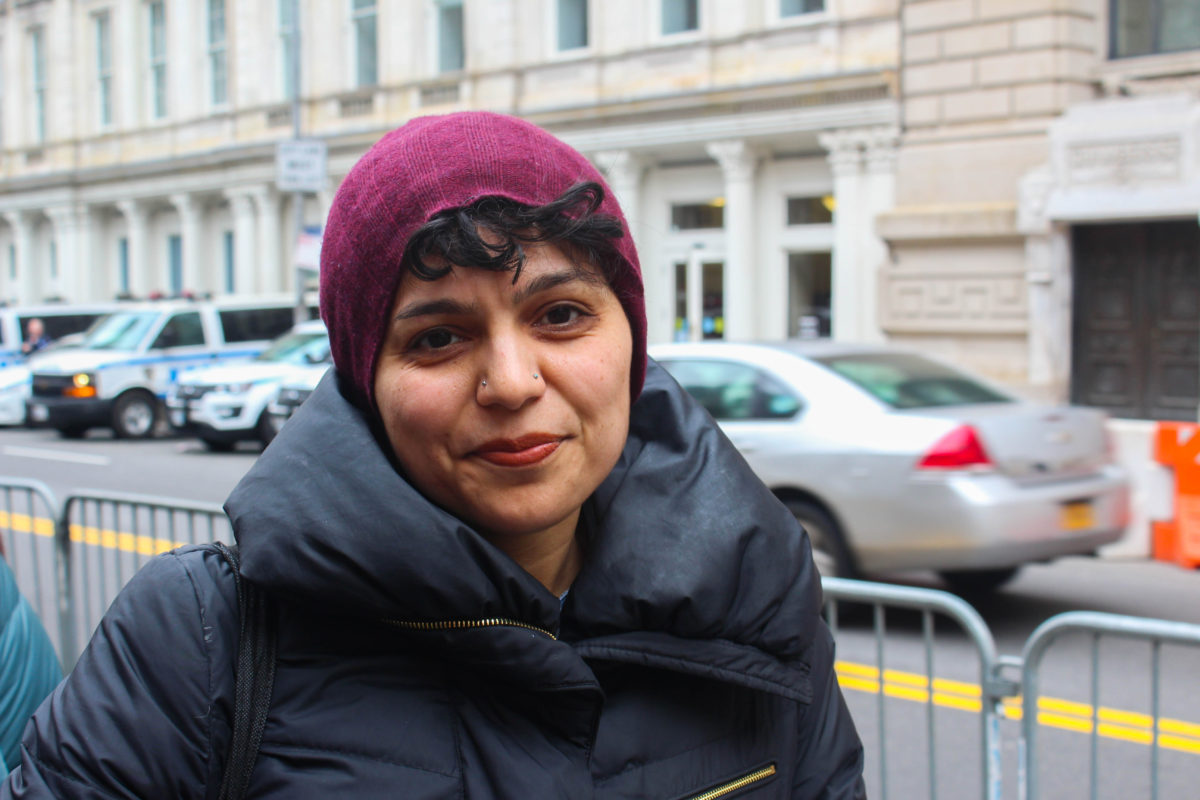
Vani Kannan, a 36-year-old assistant professor of English at Lehman College, was also amongst the crowd of people in attendance that morning. “We’ve seen police harassing and assaulting students in schools all over the country,” said Kannan. “So for me, this action today is part of a national, and really even global action that’s about young people rising up, and saying that they deserve a right to an education that does not criminalize them.”







